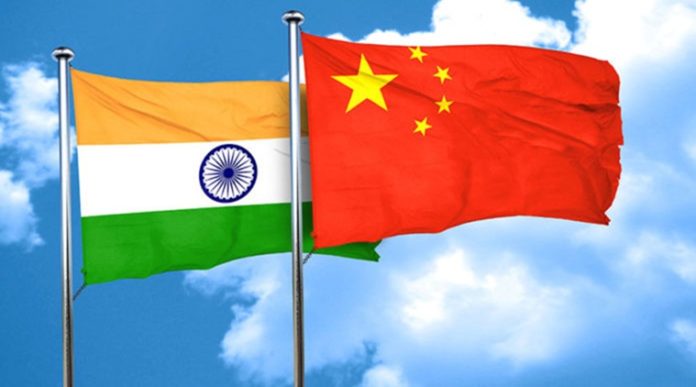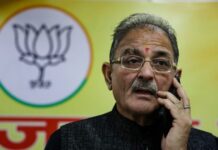New Delhi (NVI): Two days after third military-level talks between India and China to de-escalate the tense situation on Line of Actual Control (LAC), the MEA today said that it expects Beijing to sincerely follow up and ensure the expeditious restoration of peace and tranquility in the border areas as per bilateral agreements and protocols.
The MEA statement came after Corps Commander level talks held on June 30 at Chushul border point. “The two sides will continue their meetings both at the military and diplomatic level including under the framework of WMCC, in the future to resolve the issues to mutual satisfaction,” External Affairs Ministry spokesperson Anurag Srivastava said today.
“The Senior Commanders Meeting held on 30th June at Chushul was the third senior military commander level engagement to discuss issues related to disengagement at the faceoff sites along the LAC and de-escalation from the border areas,” Srivastava said during a virtual media briefing here.
During the June 30 military-level talks, both sides have emphasised the need for an expeditious, phased and step wise de-escalation as a priority. This is in keeping with the Agreement between External Affairs Minister S Jaishankar and his Chinese counterpart Wang Yi during their conversation on 17th June that the overall situation would be handled in a responsible manner, and that both sides would implement the disengagement understanding of 6 June sincerely.
The MEA spokesperson said that the discussions in the latest meeting of the Senior Commanders reflected the commitment of both sides to reduce the tensions along the LAC.
Srivastava also recalled the previous military and diplomatic level efforts between the two sides to normalise situation on LAC, especially in the wake of Galwan Valley clash.
“As you are aware, India and China have been having discussions through established diplomatic and military channels to address the situation along the LAC in India-China border areas. The Senior Commanders of two sides had met on 6th June, 22nd June and on 30th June. Diplomatic engagements are also continuing in parallel and last week on 24th June a meeting of the Working Mechanism for Consultation & Coordination on India-China Border Affairs (WMCC) was also held,” he said.
India and China are currently locked in a bitter standoff at multiple locations in Eastern Ladakh, especially after the June 15 violent clash between the Indian and Chinese troops in Galwan Valley in which 20 Indian soldiers lost their lives.
On a question over India banning Chinese mobile apps, the MEA spokesperson said that the concerned ministry (Ministry of Information and Technology) would have an appropriate explanation, but indirectly implied that the move is not going to have any negative effects as the “world’s largest software and internet applications companies are present in India.”
“India has one of the most open regimes in the world for attracting Foreign Direct Investment (FDI). In the last few years, Government has taken a host of measures for creating of a more investor-friendly regime. Similarly in the area of digital technology and internet, India has adopted a very open regime. India is today one of the world’s largest markets for digital and internet technologies with more than 680 million subscribers,” he said.
At the same time, the MEA spokesman commented that while operating in India, such companies will have to abide by the rules and regulations issued by the relevant Ministries and Departments, including those pertaining to data security and privacy of individual data.
“While we will continue to welcome foreign investments in India, including in the area of internet technologies, but this will have to be in accordance with the rules and regulatory framework established by the Government,” he added.
Notably, the Indian Government has banned 59 Chinese apps including TikTok, WeChat, Shareit, while citing the “emergent nature of threats” from mobile applications. The Ministry of Information and Technology on Monday said that it has banned the apps based on the information that they were engaged in activities “prejudicial to sovereignty and integrity, defence, security and public order” in India.
-ARK








